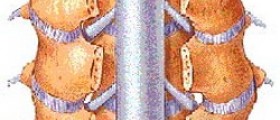
Introduction and General Data
Lung lobectomy is a surgical procedure in which a part of the lungs called lobe is removed. This surgery is performed in patients with lung cancer in case that the tumor is inside the one lobe and has not spread to the surrounding tissue. Together with the resection of the lobe a surgeon will remove the nearby lymph nodes and these are further pathohistologically examined for possible spread of cancer cells.
Since all the surgical procedures carry certain risk of complications there is also a chance that a patient who has undergone the lobectomy will develop some of the complications. Luckily consequences after lobectomy are not so severe.
Minor Complications of Lobectomy
The problems that most of the patients face are nausea and vomiting which are actually side effects of general anesthesia. Infections, if present, usually affect the incision line. The cases of secondary pneumonia are not so common. It is normal that patients lose certain amount of blood during the procedure. However the loss is not so great. Bruising can develop after each and every operation and is classified as minor complication. The bruises vanish spontaneously. Abnormalities in scar formation are mainly connected to keloids. Keloids are excessive growth of scar tissue and they only develop in people who are prone to them. The numbness of the operated area is usual complication and as time goes by the normal sensation in the chest area that has been operated will be restored. The previously mentioned complications are not so severe and patients cope with them rather easily.
Major Complications of Lobectomy
The heart can suffer from the general anesthesia. However this complication happens in those patients with the previous history of cardiovascular diseases. Small number of patients may experience problems with kidneys. The major problem of the operation is that one portion of the lungs is removed and the rest of the lungs have to compensate for the loss. This means that in the beginning the patients may have difficulties with breathing. They usually suffer from shortness of breath. In time this problem will be solved as the rest of the lungs will take over the function of the missing lobe. After the surgery small number of patients may end up with diabetes. Damage of the surrounding nerves and formation of bronchopulmonal fistulas are additional complications.
All in all, the important thing that has to be mentioned is that not all the patients are prone to the complications equally. Those who have already been suffering from obesity, heart conditions etc. are more susceptible to complications. Smokers tend to develop complications more than non-smokers. Event the previous operation in this area may be the predisposing factor for complications.

















Your thoughts on this
Loading...